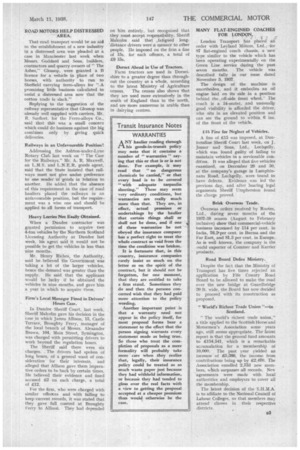Transit Insurance Notes WARRANTIES
Page 37

If you've noticed an error in this article please click here to report it so we can fix it.
ANY haulier reading through his goods-in-transit policy may note that it contains a number of " warranties " saying that this or that is or is not done. For example, it may read that " no dangerous chemicals be carried," or that every load is to be covered "with adequate tarpaulin sheeting." These may seem very ordinary conditions, but warranties are really much more than that. They are, in effect, actual promises or undertakings by the haulier that certain things shall or shall not be done, and if one of these warranties be not obeyed the insurance company has a perfect right to treat the whole contract as void from the time the condition was broken.
It is fortunate that, in this country, insurance companies rarely insist so much on the letter as on the spirit of the contract, but it should not be forgotten, for one moment, that they are entitled to take a firm stand. Sometimes they do and then the persons concerned wish that they had paid more attention to the policy wording.
Another important point is that a warranty need not appear in the policy itself, for most proposal forms bear a statement to the effect that the person signing warrants every statement made as being true. So those who treat the completion of proposals as a mere formality will probably take more care when they realize that, legally, their insurance policy could be treated as so much waste paper just because they had withheld information, or because they had tended to gloss over the real facts with a view to getting the proposal accepted at a cheaper premium than would otherwise be the case.
















































































